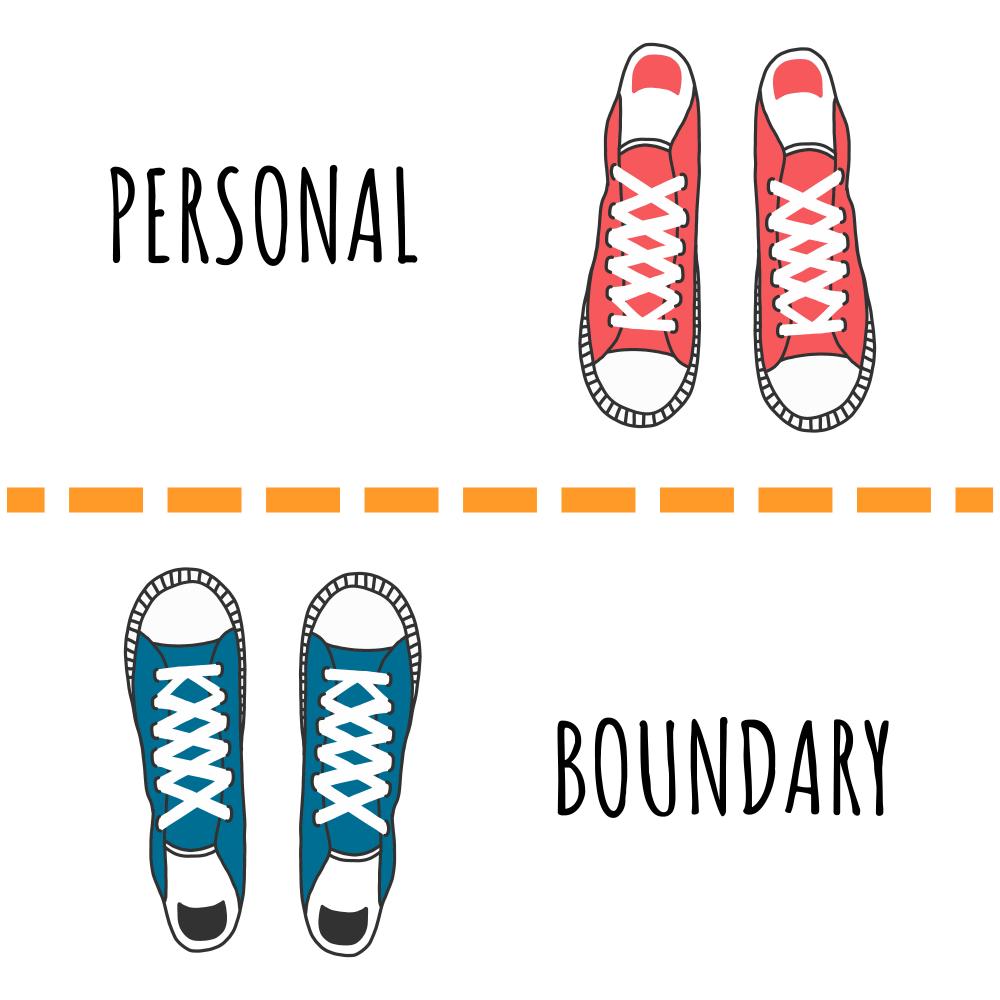NOBODY possesses complete knowledge, wisdom, or insight. What we think, believe, and feel is always filtered via the prism of our own experience. We can certainly gain from hearing one other’s points of view. Hopefully, the exchange of ideas will help us learn and improve. However, we do have a right to our own psychic space. Respecting boundaries involves allowing that space to exist for ourselves as well as others.
Each and every relationship is unique, but all relationships must have respect for boundaries. We may overstep boundaries because we believe we know what is best for someone, or we may believe we are attempting to assist or protect them; thus, we attempt to exert control over the person or circumstance. We must respect the limits of others in our life in order for them to feel secure and comfortable with us.
Healthy boundaries are adaptable. They have enough power and firmness to keep us secure and autonomous, yet they are also open enough to allow for connection and mutual respect. We are willing to take responsibility for our own lives when we establish healthy boundaries. And we should encourage others to do the same. This means that we shouldn’t hold others responsible for the results of our life choices or expect them to fix us or our issues. We also don’t take responsibility or feel responsible to improve other peoples’ lives. Of course, we may assist others and receive assistance when necessary. We do it, however, with the awareness and respect that we all have sovereignty over our own lives.
Here are some tips on how to respect other people’s boundaries.

Communicate
Proper communication is essential for recognising the boundaries of others. Take note of how they respond to you in conversations, as well as their body language. It is critical to determine whether they are comfortable with your queries. Do they appear closed off, or are they offering reasons to leave the discussion or go somewhere else? If you are unsure, do not be afraid to ask questions. Allow them to state their limits so you know whether or not you are infringing. Communication in established relationships is likely to be ongoing, as the two of you may need to make it clearer from time to time.
Don’t take yourself too seriously
You do realise you are not the centre of the world, right? You can’t dispute that you frequently forget this and interpret other people’s emotions as though they are entirely due to you. But here’s the thing: just as you are unconcerned with much of what you say or do on a daily basis, so are others. If someone disagrees with you on something, instead of becoming upset, appreciate their their point of view.

Accept the differences
People commonly forget that their style of thinking may differ from that of others. As a consequence, they continue to push someone or continue to do what they believe is perfectly normal, ignoring the other person’s perspective entirely. Remember how you get to define your rights and set your own boundaries? It’s the same for them too. It’s easy to have good intentions for those you care about, but everyone requires some space and individuality. You can recommend or counsel individuals, but you cannot determine their decisions for them. If you force people with your objectives all the time, you will only make their lives harder.

Work on yourself
Respect for others’ boundaries stems from a sense of personal security and reliability. You should not feel compelled to force people or to violate their limits for any reason. You have no influence over what others will or will not do. You can definitely try, but they will eventually crawl out from under your influence and go their own way. Boundary respect is a skill that must be practiced. It is a procedure that necessitates self-acceptance and tolerance for unpleasant situations. Allowing people to possess thoughts and opinions that differ from our own provides wonderful freedom. It means we don’t have to feel responsible for something we can’t control, and we can truly own the fact that our thoughts and views don’t have to adapt to the expectations of others.
Respecting others’ boundaries shows to them that you are a reliable and courteous individual. That will open the door to developing greater relationships with those with whom you connect well, as well as those with whom you do not. After all, not everyone requires best buddies. Having a group of casual acquaintances or respected coworkers is beneficial in its own right.









